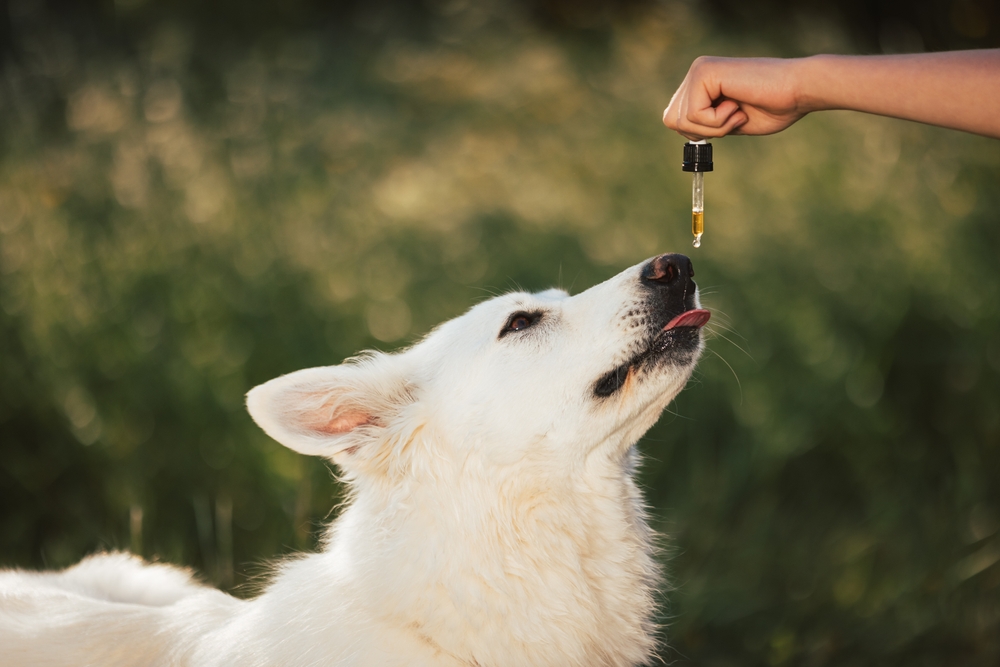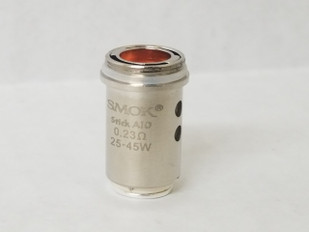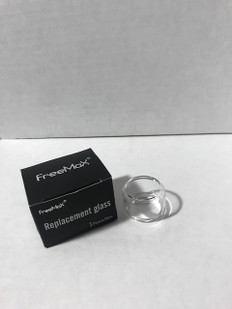- Home
- The Vape Mall Blog
- Should Your Dog Be Taking CBD if They Don’t Feel Well?
Should Your Dog Be Taking CBD if They Don’t Feel Well?
Posted by on
 If there’s one thing that unites all dog owners, it’s
a deep care and love for their four-legged companions. If dogs are man’s best friend, then that
explains why so many dog owners feel a sense of despair when their pooch is
feeling unlike themselves. It can be
hard to watch a dog struggle with a particular ailment, as we can’t comfort
them with words and ask them what their symptoms are.
If there’s one thing that unites all dog owners, it’s
a deep care and love for their four-legged companions. If dogs are man’s best friend, then that
explains why so many dog owners feel a sense of despair when their pooch is
feeling unlike themselves. It can be
hard to watch a dog struggle with a particular ailment, as we can’t comfort
them with words and ask them what their symptoms are.
Dog owners who appreciate a more holistic approach to pet care are starting to turn to CBD products derived from the hemp plant, that are specifically manufactured for canine use.
Is it Safe to Give a Dog CBD?
First, let’s answer the most important question, which is whether or not it’s actually safe to give a dog CBD. Experts agree that cannabidiol is fine for dogs, because all mammals share an endocannabinoid system (ECS) – it’s the reason why our bodies utilize CBD and other cannabinoids in such a widespread and useful way. The endocannabinoid system is in charge of regulating various bodily processes, and it does this by sending cannabinoids to strategically placed cannabinoid receptors. Because of this system, CBD is nontoxic to mammals, as the ECS simply stores excess levels of cannabinoids for later use.
Research on CBD's effects on dogs is limited still, so most of the evidence supporting its use is anecdotal or based on studies that don't meet the rigorous standards of scientific research. This doesn't mean CBD isn't effective, but it's a factor to consider when evaluating its potential benefits and risks.
What Could CBD Do For a Dog?
So, what can CBD do for a dog? Well, because dogs also have endocannabinoid systems, it seems like any properties that CBD can offer us, it can offer dogs as well. This includes its calming properties, and its potential properties for pain. If you’re unsure as to whether or not CBD will be helpful for your dog’s specific issue, you can look for studies regarding CBD’s effects, and apply them to your canine.
Is Giving a Dog CBD Legal?
It’s perfectly legal to give your dog CBD that comes from the hemp plant, which is the plant from which all commercial CBD goods are made. Hemp contains too low an amount of THC to produce psychoactive effects. It’s important to note that marijuana is unsafe for dogs due to their difficulty processing high levels of THC.
What Should a Dog Owner Know Before Giving Their Dog CBD?
So, how can you give a dog who isn’t feeling well a useful dose of CBD? Well, we’ve created a short guide that covers everything that you need to know before starting them on a routine.
Tip #1: Speak to Your Veternairan
Yes, you want to speak to your veterinarian, especially f your dog isn’t feeling well, as your vet needs to know. And, if you plan on giving them CBD, your vet may be helpful when it comes to determining the right amount to give them, how long it may take before the CBD begins working, and so on. You should update your vet on any changes as your dog begins taking CBD on a regular basis.
Tip #2: Select a Pet-Friendly CBD Product
It’s absolutely crucial that you only give your dog a CBD product formulated for canines. For starters, CBD products for humans may contain ingredients that are unsafe for dogs. Furthermore, pet-friendly CBD products contain potency levels that’re more appropriate for dogs’ bodies.
Tip #3: Choose the Right Milligram Strength for Their Body Weight
Companies that make CBD pet products offer a number of milligram strengths that each correspond with a different body weight range. Choose the right milligram strength for your dog’s body weight to ensure that they’re getting the proper number of cannabinoids for their unique needs.
Tip #4: Choose an Agreeable Delivery Method
CBD dog goods come in a number of delivery methods, including edible treats, tinctures, food additives and topicals. Each delivery method has its own activation period and level of potency felt within the body. Explore the options that are available and choose the one that’s most likely to agree with his or her needs and preferences.
Tip #5: Monitor Them
When you start your dog on a hemp regimen, it’s important that you monitor them closely to see how they respond to the intake of CBD and other hemp compounds. Look for changes in behavior and signs in relief. There’s always a small chance that your dog won’t enjoy CBD, so look for signs of that as well.
Could There Be Any Potential Side Effects When Administering Your Dog CBD (Digesting or Applying Topically) and Could It Make Them Feel Worse?
Potential side effects such as dry mouth, lowered blood pressure, or drowsiness can occur when administering CBD for your canine to digest. High doses might lead to more severe issues. You see, while CBD isn’t known to be lethal, giving a dog too much can lead to discomfort or potential complications. Proper dosing according to the dog's size and the product's concentration is essential.
Not to mention, CBD can interact with other medications. So, if your dog is on medication, it's imperative to consult with a veterinarian before adding CBD to ensure there are no potential harmful interactions. Also, in dogs with underlying health issues, the use of CBD could potentially exacerbate certain conditions. Again, consulting with a veterinarian is crucial to understand the potential risks and benefits for your specific dog.
Another thing to keep a look out for are CBD-infused products that have third-party lab reports, because some CBD products may not contain the amount of cannabidiol advertised, while others may have contaminants.
Now, as for CBD topicals for dogs, these are generally considered fine to use by pet owners to address various issues such as skin irritation, pain, or inflammation. However, like any treatment, they can potentially cause adverse reactions in some dogs. The severity and occurrence of these reactions can vary based on the individual dog's sensitivity, the quality of the CBD product, and the dosage used. Some dogs might experience adverse effects from CBD topicals, including:
1.Allergic Reactions: Some dogs might be allergic to ingredients in the CBD topical, not necessarily the CBD itself. Signs of an allergic reaction can include redness, itching, or a rash at the application site.
2.Gastrointestinal Issues: If a dog licks the area where the topical was applied, they might ingest some of the product, potentially leading to gastrointestinal upset, including symptoms like diarrhea or vomiting.
3.Skin Irritation: Although CBD topicals are meant to soothe the skin, some dogs might have a sensitivity to CBD or other ingredients in the product, leading to irritation or worsening of skin problems.
Final Thoughts
Overall, cannabidiol has gained popularity for its potential benefits, including in pets. However, it's important to approach the use of CBD for dogs with caution. While some dog owners report positive effects, such as reduced anxiety or pain relief, the ‘science’ is still emerging, and the effects can vary depending on numerous factors. Hence, it can all vary on a case-by-case basis. So, if you wish to begin a CBD regimen for your pup, then use this article as a guide in order to go about it in the right way.
And remember, it's crucial to talk to a veterinarian before starting your dog on CBD, especially if your dog has existing health issues or is on medication. They can provide advice based on the latest research and their professional experience, helping you make a decision that's in the best interest of your dog's health.
 Loading... Please wait...
Loading... Please wait...



















